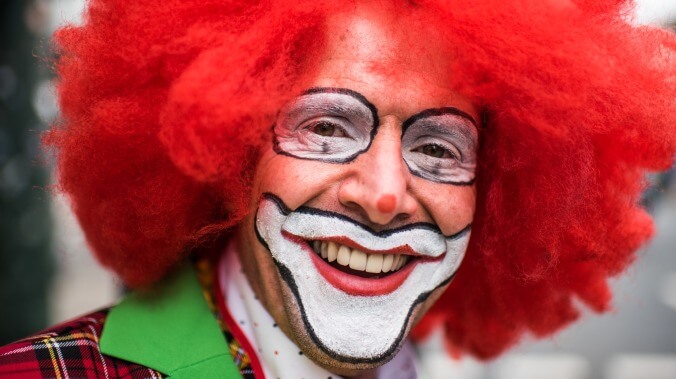Read this, clowns: Dig into the psychological makeup of r/RoastMe culture

Welcome to r/RoastMe, the long-thriving subreddit where users can gorge on all the unflattering criticism they can stomach with a simple upload of a photo and a dash of expressed consent. It’s an inherently perplexing set-up—one would think that most wish to avoid online hate of any sort—and yet the forum’s enduring popularity speaks to a largely shared understanding among those who partake. What exactly makes someone open themselves up to pointed taunting? Who genuinely wants to have their forehead compared to a battered billboard?
Inverse’s Emma Betuel took an impressively deep dive into, as she puts it, “the weirdest place to be intentionally wrecked online” in a piece called “The Strange Psychology Of Reddit’s r/RoastMe.” With the help of a few users, moderators, mental health professionals, a handful of studies, and her own documented experience with the online space (yes, she volunteered her own photo for friendly-ish ridicule), Betuel dug into the collective mindset that fuels the culture, the anatomy of a responsibly crafted insult, and the odd comfort that the community provides for all.
For the consenting target, it can be about minimizing their own preexisting insecurities, per the subreddit’s moderators:
From an outside perspective, it’s hard to imagine why anyone would ever serve themselves up for this intense experience. u/Thumbs0fDestiny, [a] moderator of r/RoastMe, tells me that their mission is very simple. (He and several other moderators asked that Inverse use his screen name to identify him in this story.) “We’re all that kid that sits in the back of class, or the person at the end of the bar that throws out a wisecrack every now and then for a laugh,” he says. “Deeper than that, joking about our faults makes those faults seem less important.”

 Keep scrolling for more great stories from The A.V. Club.
Keep scrolling for more great stories from The A.V. Club.